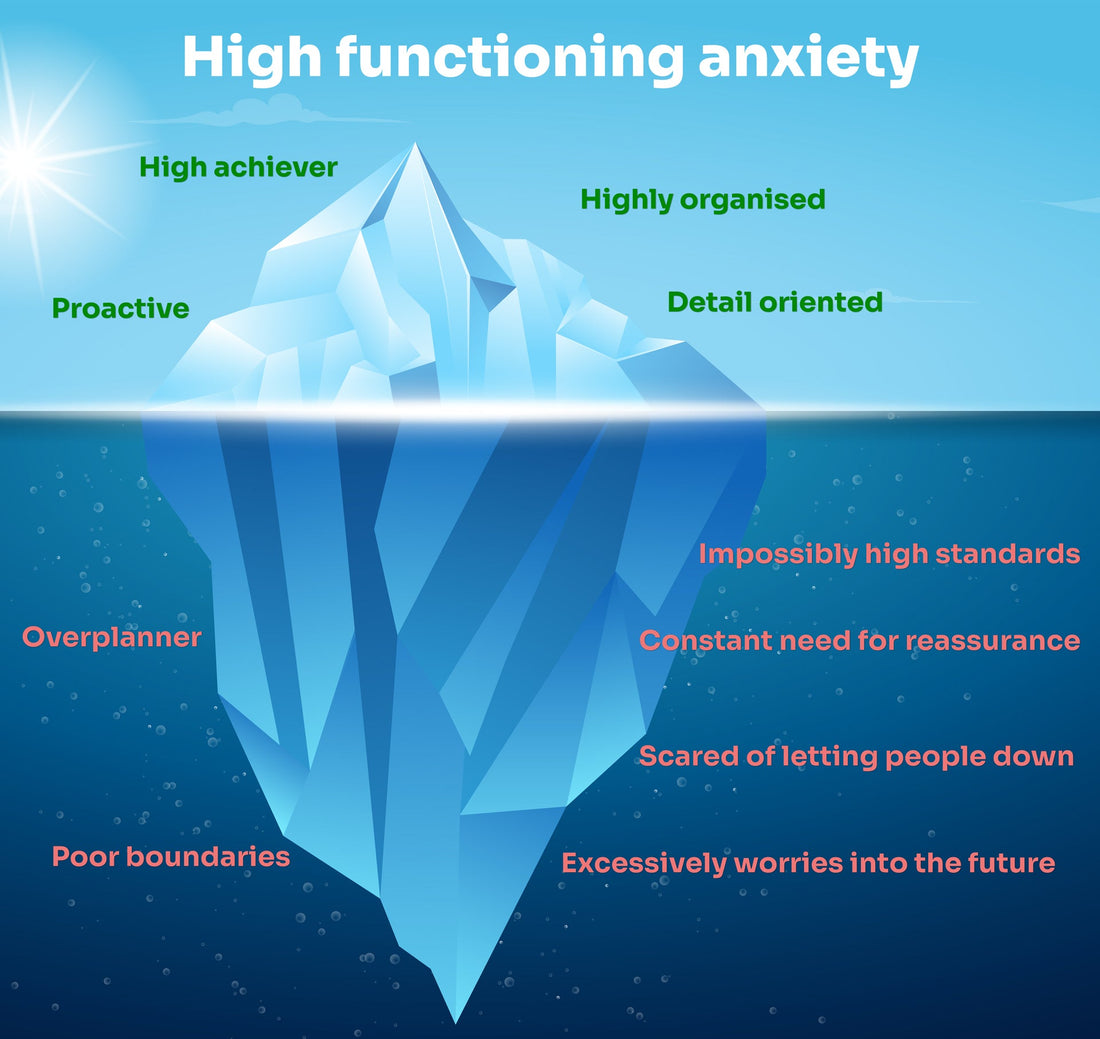
Learners with high functioning anxiety: how to manage them
SUKH SANDHULearners with high functioning anxiety: how to manage them
There are several ways to identify learners with high functioning anxiety in the vocational education sector. First, it is important to understand the definition of high functioning anxiety. High functioning anxiety is a term used to describe individuals who experience anxiety symptoms that interfere with their daily lives, but who are still able to function relatively well in society. Individuals with high functioning anxiety often have successful careers and maintain close relationships, but they may also struggle with chronic worry, perfectionism, and other common symptoms of anxiety.
One way to identify learners with high functioning anxiety is to look for signs and symptoms of anxiety in their behaviour. Common signs of anxiety include: avoidance of situations that trigger anxiety, difficulty concentrating, difficulty sleeping, irritability, and muscle tension. If a learner is exhibiting any of these signs, it may be indicative of high functioning anxiety. Additionally, learners with high functioning anxiety may also have a history of anxious thoughts or behaviours. For example, they may have been diagnosed with an anxiety disorder in the past, or they may have close family members who suffer from anxiety.
Another way to identify learners with high functioning anxiety is to administer an anxiety test. There are several different types of anxiety tests that can be used, but the most common is the State-Trait Anxiety Inventory (STAI). The STAI is a self-report measure that asks individuals to rate their current level of anxiety on a scale from 1 to 100. Individuals who score above 70 on the STAI are considered to be high in state anxiety, which means they are experiencing a high level of anxiety at the time of the test. Individuals who score above 50 on the STAI are considered to be high in trait anxiety, which means they tend to experience high levels of anxiety in general.
If you suspect that a learner may be suffering from high functioning anxiety, it is important to consult with a mental health professional, only a qualified mental health professional can diagnose anxiety disorders. However, if you have any concerns about a learner's mental health, it is always best to err on the side of caution and seek professional help.
As an educator what can you do?
Vocational education can be an important tool for helping learners with high functioning anxiety to manage their condition. By providing them with skills and knowledge that can help them in their future careers, vocational education can help them to feel more confident and capable in managing their anxiety.
There are a number of things that vocational educators can do to support learners with high functioning anxiety:
Providing information about the condition: It can be helpful for learners to have an understanding of what high functioning anxiety is and how it can impact their lives. This can help them to feel more in control of their condition and better able to manage it.
Encouraging self-awareness: Helping learners to become more aware of their own thoughts, feelings and behaviours can be a valuable way of helping them to manage their anxiety. This self-awareness can also help them to recognise when their anxiety is starting to get the better of them and take steps to bring it back under control.
Promoting healthy coping strategies: It is important for learners to have healthy coping strategies in place to deal with their anxiety. This might include things like exercise, relaxation techniques or journaling. Encouraging learners to use these coping mechanisms can help them to better manage their anxiety on a day-to-day basis.
Building confidence and self-esteem: One of the main goals of vocational education should be to help learners build confidence and self-esteem. This is particularly important for those with high functioning anxiety, as low self-confidence can be a trigger for anxiety. By helping learners to feel good about themselves and their abilities, vocational education can help to reduce the impact of anxiety in their lives.
If you are a vocational educator working with learners who have high functioning anxiety, there are a number of things that you can do to support them. By providing information, promoting healthy coping strategies and building confidence, you can help these learners to better manage their condition and lead successful lives.
RECENT POSTS





